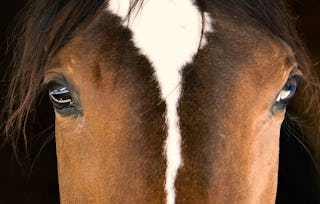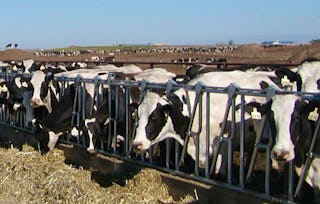There are over 100 million horses, donkeys and mules in the world today and owners of these animals can be found on almost every continent and in almost every society. The Horse Course will cover many unique aspects of equine ownership and touch upon the science behind many of today’s management practices.

The Horse Course: Introduction to Basic Care and Management

The Horse Course: Introduction to Basic Care and Management

Instructor: Chris J. Mortensen, Ph.D.
53,197 already enrolled
Included with
990 reviews
Skills you'll gain
Details to know

Add to your LinkedIn profile
See how employees at top companies are mastering in-demand skills

There are 6 modules in this course
Welcome to Week 1 of The Horse Course! To start off the course, we will begin discussing what exactly an “equid” is. We will cover the many equine species inhabiting our globe. Next, we’ll jump into the history of horses and donkeys, touching upon how they have made such an impact on our own societal development. The second half of week 1 will cover the many breeds of horses and donkeys. We will finish up with a lecture on the equine hybrids.
What's included
7 videos1 reading1 assignment1 discussion prompt
This week will start out with covering some basic physiology. We will then advance into hoof anatomy and care. This will lead to spending a lecture discussing laminitis, a serious hoof condition in horses and other equids. The final two lectures will jump into the various coat colors and markings in horses.
What's included
10 videos1 reading1 assignment1 peer review1 discussion prompt
The topics this week will focus on equid behavior and movement. Understanding how equids relate to their environment and communicate is critical to training and management. We will start this week by examining the basic equine senses and communication. Then we will discuss normal and abnormal behaviors and the basic psychology used in training. We will finish the week discussing the basic gaits and how these animals move.
What's included
8 videos1 reading1 assignment1 peer review1 discussion prompt
The topics this week will focus on equid nutrition. Understanding how and what to feed these animals is one of the most important aspects of basic care. We will start with digestive anatomy, how to evaluate your animal’s nutrient requirements, and then jump into feeding management. We will round out the week discussing colic and other nutritional disorders.
What's included
8 videos1 reading1 assignment1 peer review1 discussion prompt
The topics this week will focus on equine health. Monitoring and taking care of your animal’s health is critical to owning any equid. We will start off with the normal equine vital signs and then we will discuss administering first aid to your animals. We will then cover the different parasites and diseases that can afflict these animals. Finally, we will end the week discussing some common genetic disorders.
What's included
8 videos1 reading1 assignment1 peer review1 discussion prompt
The topics this week will focus on equine reproduction. Breeding is an important component of the equine industry. We will start off this week with some basic anatomy, including what makes the equids unique. Then we will cover the estrous cycles of mares and jennies, followed by common breeding systems used throughout the world. After discussing unique aspects of equine pregnancy and parturition, we will finish out the week covering some management tips for taking care of the newborn foal.
What's included
8 videos1 reading1 assignment1 discussion prompt
Instructor

Offered by
Explore more from Animal Health
 Status: Preview
Status: PreviewUniversity of California, Davis
 Status: Preview
Status: PreviewUniversity of Pennsylvania
 Status: Preview
Status: PreviewThe Pennsylvania State University
 Status: Preview
Status: PreviewJordan University of Science and Technology
Why people choose Coursera for their career

Felipe M.

Jennifer J.

Larry W.

Chaitanya A.
Learner reviews
- 5 stars
90.30%
- 4 stars
7.67%
- 3 stars
1.41%
- 2 stars
0.20%
- 1 star
0.40%
Showing 3 of 990
Reviewed on Oct 26, 2020
Great course for Equine enthusiast and for equine veterinarians who need a refresher of this topic. I appreciated this course so much and I look forward to more equine or animal courses.
Reviewed on Feb 7, 2017
I really enjoyed this course and learned a lot about maintaining horses. I would love to see more horse (nutrition and ethology for example) courses offered by the University of Florida!
Reviewed on Sep 8, 2018
I have learnt so much by taking this course, so thorough and engaging, ill be sad to not be studying this on my evenings anymore for sure. 100% recommend. Thankyou for holding such a great course.

Open new doors with Coursera Plus
Unlimited access to 10,000+ world-class courses, hands-on projects, and job-ready certificate programs - all included in your subscription
Advance your career with an online degree
Earn a degree from world-class universities - 100% online
Join over 3,400 global companies that choose Coursera for Business
Upskill your employees to excel in the digital economy
Frequently asked questions
To access the course materials, assignments and to earn a Certificate, you will need to purchase the Certificate experience when you enroll in a course. You can try a Free Trial instead, or apply for Financial Aid. The course may offer 'Full Course, No Certificate' instead. This option lets you see all course materials, submit required assessments, and get a final grade. This also means that you will not be able to purchase a Certificate experience.
When you purchase a Certificate you get access to all course materials, including graded assignments. Upon completing the course, your electronic Certificate will be added to your Accomplishments page - from there, you can print your Certificate or add it to your LinkedIn profile.
Yes. In select learning programs, you can apply for financial aid or a scholarship if you can’t afford the enrollment fee. If fin aid or scholarship is available for your learning program selection, you’ll find a link to apply on the description page.
More questions
Financial aid available,
¹ Some assignments in this course are AI-graded. For these assignments, your data will be used in accordance with Coursera's Privacy Notice.

